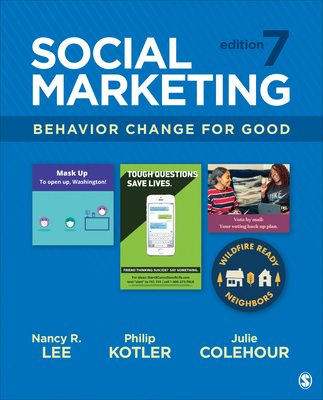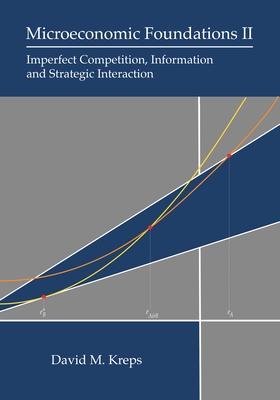图书简介
When we think of bacteria our thoughts immediately turn to disease. However, scientists are increasingly likely to study how bacteria get along with us. This book is the first to discuss how bacteria cooperate with their animal hosts and how this cooperation can be beneficial to both bacteria and host.
Part I. Evolutionary Biology of Animal Host-Bacteria Interactions: 1. How have bacteria contributed to the evolution of multicellular animals? Carol Hickman; 2. The interface of microbiology and immunology: a comparative analysis of the animal kingdom Margaret McFall-Ngai; 3. Co-evolution of bacteria and their hosts: a marriage made in heaven or hell? Jörg Hacker, Ulrich Dobrindt, Michael Steinert, Hilde Merkert and Ute Hentschel; 4. Industrial revolution and microbial evolution Fernando de la Cruz and Julian Davies; 5. Bacteria evolve and function within communities: observations from experimental Pseudomonas populations Paul B. Rainey; Part II. Bacterial Ecology and the Host as an Environment: 6. Coral symbioses: the best and worst of three kingdoms Eugene Rosenberg; 7. Interactions between inherited bacteria and their hosts: the Wolbachia paradigm Zoe L. Veneti, Max Reuter, Horacio Montenegro, Emily A. Hornett, Sylvain Charlat and Gregory D. Hurst; 8. Microbial communities in lepidopteran guts: from models to metagenomics Jo Handelsman, Courtney J. Robinson and Kenneth B. Raffa; 9. Commensal diversity and the immune system: modelling the ’host-as-network’ Robert M. Seymour; Part III. Cellular Interactions at the Bacteria-Host Interface: 10. Beneficial intracellular bacteria in the Dryophthoridae: evolutionary and immunological features of a pathogenic-like relationship Abdelaziz Heddi and Caroline Anselme; 11. Regulation of Bordetella-host interactions: mechanisms and evolution Seema Mattoo and Jeff F. Miller; 12. Resident bacteria as inductive signals in mammalian gut development Lora V. Hooper; 13. Virulence or commensalism: lessons from the urinary tract Göran Bergsten, Björn Wullt and Catharina Svanborg; Part IV. Bacterial Interactions with the Immune System: 14. Host responses to bacteria: innate immunity in invertebrates L. Courtney Smith; 15. Bacterial recognition by mammalian cells Clare E. Bryant and Sabine Tötemeyer; 16. Moonlighting in protein hyperspace: shared moonlighting proteins and bacteria-host crosstalk Brian Henderson; 17. Cell signalling pathways as targets for bacterial evasion and immunity Andrew N. Neish; 18. Shaping the bacterial world by human intervention Rino Rappuoli.
Trade Policy 买家须知
- 关于产品:
- ● 正版保障:本网站隶属于中国国际图书贸易集团公司,确保所有图书都是100%正版。
- ● 环保纸张:进口图书大多使用的都是环保轻型张,颜色偏黄,重量比较轻。
- ● 毛边版:即书翻页的地方,故意做成了参差不齐的样子,一般为精装版,更具收藏价值。
关于退换货:- 由于预订产品的特殊性,采购订单正式发订后,买方不得无故取消全部或部分产品的订购。
- 由于进口图书的特殊性,发生以下情况的,请直接拒收货物,由快递返回:
- ● 外包装破损/发错货/少发货/图书外观破损/图书配件不全(例如:光盘等)
并请在工作日通过电话400-008-1110联系我们。
- 签收后,如发生以下情况,请在签收后的5个工作日内联系客服办理退换货:
- ● 缺页/错页/错印/脱线
关于发货时间:- 一般情况下:
- ●【现货】 下单后48小时内由北京(库房)发出快递。
- ●【预订】【预售】下单后国外发货,到货时间预计5-8周左右,店铺默认中通快递,如需顺丰快递邮费到付。
- ● 需要开具发票的客户,发货时间可能在上述基础上再延后1-2个工作日(紧急发票需求,请联系010-68433105/3213);
- ● 如遇其他特殊原因,对发货时间有影响的,我们会第一时间在网站公告,敬请留意。
关于到货时间:- 由于进口图书入境入库后,都是委托第三方快递发货,所以我们只能保证在规定时间内发出,但无法为您保证确切的到货时间。
- ● 主要城市一般2-4天
- ● 偏远地区一般4-7天
关于接听咨询电话的时间:- 010-68433105/3213正常接听咨询电话的时间为:周一至周五上午8:30~下午5:00,周六、日及法定节假日休息,将无法接听来电,敬请谅解。
- 其它时间您也可以通过邮件联系我们:customer@readgo.cn,工作日会优先处理。
关于快递:- ● 已付款订单:主要由中通、宅急送负责派送,订单进度查询请拨打010-68433105/3213。
本书暂无推荐
本书暂无推荐















